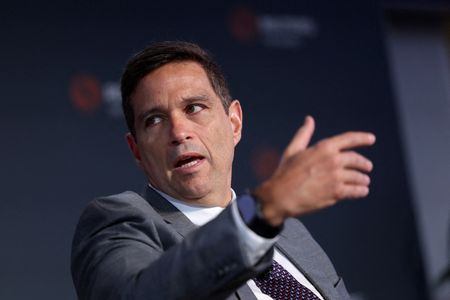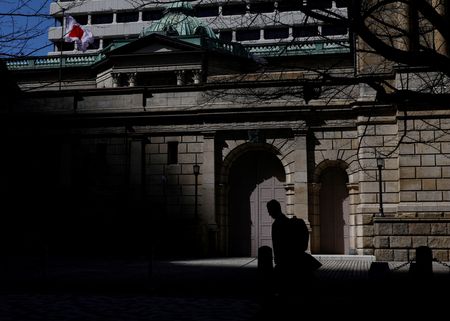By Marcela Ayres
BRASILIA (Reuters) -Brazil’s central bank is firmly committed to pursuing its 3% inflation target, board members said on Wednesday, noting that they share concerns about rising price expectations despite disagreements about lowering interest rates at last week’s monetary policy meeting.
Governor Roberto Campos Neto stressed that the bank will not shy away from the target, while monetary policy director Gabriel Galipolo said the goal is not up for discussion.
Their remarks reinforced the bank’s hawkish tone after its split decision last week to cut interest rates by 25 basis points to 10.50% after six consecutive cuts twice that size. All four appointees of President Luiz Inacio Lula da Silva to the nine-member board voted for a 50-basis-point cut, adhering to a March guidance.
The officials’ remarks helped to further fuel bets embedded in interest rates futures that the bank would pause its easing cycle as soon as its next monetary policy meeting in June.
“Our mandate is clear, well-defined and it will be pursued,” Campos Neto said at a central bank event in Brasilia, emphasizing that policy discussions should exclude the target’s tolerance band of plus or minus 1.5 percentage points.
Shortly after his speech, Galipolo said at an event in New York that he agreed with Campos Neto’s sentiments.
Galipolo, seen as the frontrunner to succeed Campos Neto when his term ends in December, said he had contemplated voting for a 25-basis-point cut and would have been comfortable with it.
Galipolo said he ended up voting for a 50-basis-point reduction because he thought the bank’s reputation would suffer from abandoning its previous guidance, and he wanted to be consistent in his public statements and actions.
Campos Neto, who led the group that sealed the 25-basis-point cut, highlighted that policymakers discussed how inflation expectations are extremely relevant. Galipolo noted significant discomfort with them drifting away from the inflation target.
“It’s very valuable to convey this sense of concern by slowing down the pace, as proposed by the five colleagues who voted for the 25 (basis-point cut),” said Galipolo.
Policymakers have noted that inflation expectations have risen, as seen in market prices and a weekly survey of economists, after remaining steady for months.
Campos Neto said a smaller rate cut was justified by factors such as expectations that U.S. interest rates would remain high for a longer period, labor market strength in Brazil and its impact on prices of services, food inflation risk and uncertainties about oil prices.
(Reporting by Marcela Ayres; editing by Gabriel Araujo and Richard Chang)











